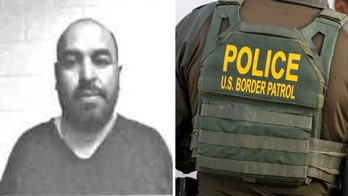States step up to fill federal government void
Interior Department agrees to let states use their own money to open some parks
First, it was a foundation stepping up to cover the cost of death benefits for America's fallen soldiers.
Now, states are starting to come forward to fill the roles that the federal government has abandoned amid the partial government shutdown.
The latest example is Utah, whose governor announced overnight that the state struck a deal with the U.S. Department of Interior to re-open five national parks -- using Utah taxpayer dollars.
Gov. Gary Herbert signed an agreement to pay the National Park Service up to $1.67 million to re-open eight total sites in the state for up to 10 days.
"Utah's national parks are the backbone of many rural economies and hard-working Utahns are paying a heavy price for this shutdown," Herbert said in a written statement. His office said the parks -- including Zion and Bryce Canyon -- will start opening on Friday and be fully operational by Saturday.
The deal comes after the Interior Department agreed to let states use their own money to open some parks amid the partial shutdown. Governors from Utah and three other states -- South Dakota, Arizona and Colorado -- had asked for that authority.
Though the states would have to front their own money to the federal government, they acted in part out of concern that local communities were losing hundreds of thousands of dollars in lost tourism revenue due to the parks' closure.
Figures compiled by a coalition of retired park service workers indicate that, in total, some 700,000 people a day would have been visiting the parks and that the surrounding areas are losing $76 million in visitor spending per day.
But the national parks are hardly the only function of the federal government affected by the partial shutdown -- or threatened by the possibility that Congress does not raise the debt ceiling by an Oct. 17 deadline. If that deadline is missed, the Treasury Department warned an array of payments might not be sent out, including Social Security checks, Medicare reimbursements and military salaries.
The Los Angeles Times reports that California is weighing whether to step up to cover the cost of some federal programs, like food stamps and assistance for pregnant women, if they are threatened in the coming weeks.
Earlier this week, charity group The Fisher House Foundation stepped in to cover the cost of the $100,000 death benefits that are typically paid to families of fallen soldiers. Those payments stopped after Congress and the White House failed to reach a spending agreement by midnight Oct. 1. President Obama, though, signed a bill late Thursday that would once again allow the federal government to pay those benefits.
Meanwhile, Republicans lawmakers and Obama are at last talking about a possible agreement to resolve the budget and debt stalemate.
A proposal from House Republicans to approve a short-term increase in the debt ceiling was met with resistance during a White House meeting on Thursday.
But as House Republicans continued to revise their plan, Senate Republicans were planning to meet with Obama on Friday morning.
The Associated Press contributed to this report.





